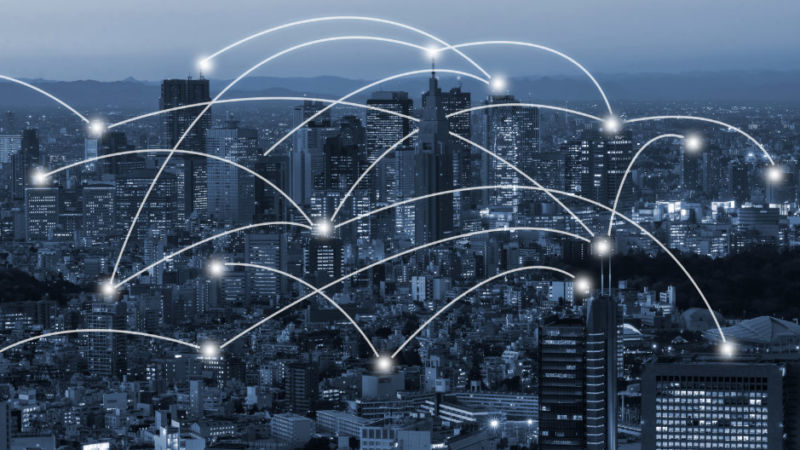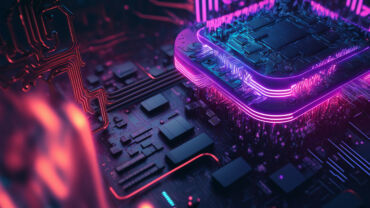As the world prepares for implementation of new high-speed 5G cellular networks, one thing is certain: 5G will generate a great deal of work for lawyers
Countries all over the world are preparing for the deployment and implementation of high-speed 5G cellular networks, the next-generation wireless communication protocol that promises to transform (once again) the way human beings live, work, play, and communicate.
Though the ultimate social impact of this new technology is unclear, one thing is certain: 5G will generate a great deal of work for lawyers.
Legal Challenges Galore
To begin with, the rollout of 5G over the next few years will inevitably prompt a cascade of legal challenges and legislative actions involving spectrum allocation, licensing, property rights, patent claims, privacy, cybersecurity, health concerns, and other issues. 5G will also spark something close to a technological arms race in almost every key industry on the planet, creating an unprecedented — and potentially volatile — period of creative disruption as markets sort out the winners and losers in this new hyper-connected reality.
Five years from now, issues involving 5G have the potential to touch virtually every major legal practice area, including banking and finance to mergers and acquisitions, intellectual property, government, labor relations, international trade, and everything in between.
The reason: 5G isn’t just another incremental jump in speed; it is an exponential leap that offers speeds 100- to 1,000-times faster than current 4G networks. It’s difficult to overstate the significance of this acceleration.
Though the ultimate social impact of this new technology is unclear, one thing is certain: 5G will generate a great deal of work for lawyers.
For the first time in history, human beings and their devices all over the world will soon be connected to an artificially intelligent neural network capable of facilitating (and learning from) billions of new interactions every day. The Internet of Things, autonomous vehicles, robot doctors, real-time virtual reality, “smart” everything — these advancements are only the beginning. Industries such as healthcare, education, media, gaming, manufacturing, transportation, and retail are all poised to assimilate 5G into their processes and workflows, transforming the technological infrastructure upon which modern civilization is built.
Soon, thousands of products and services that weren’t possible before will be, and the corporate churn rate — as old businesses die and new ones are born — will be staggering. Millions of new jobs in yet-to-be-imagined industries will be created, certainly, but millions of traditional jobs will also disappear.
Managing the transition into this new era of super-connected globalism is going to be a tremendous social challenge, involving not only individuals, businesses, and corporations, but also governments, countries, and the levers of international power. Today’s social and political upheavals may soon seem petty compared to the tectonic shifts to come, especially considering that 5G is arriving during a period of resurgent nationalism, particularly in the U.S. and Europe.
In a 5G world, however, geography won’t matter nearly as much as mastery of 5G technologies, industries, and infrastructure, which is why the U.S and China are both trying so hard to dominate the 5G market.
Skepticism & Controversy
For better or worse, lawyers are going to play an important role in this transformation, because the rule of law is one of the few bulwarks that modern society has against the insistent forces of technological change.
In the U.S., for example, many communities are concerned about the possible health hazards posed by 5G technology itself, which requires placing millions of small booster antennas every thousand feet or so (everywhere, basically) to maintain signal strength. Critics argue that not enough research has been done on the impact of higher-frequency 5G signals on human beings, and that bathing humanity in a sea of 5G radiation without adequate research is both irresponsible and dangerous.
The telecom industry and the Federal Communications Commission (FCC) both insist that 5G is safe, but public trust in corporations and the federal government is at an all-time low, so skepticism runs rampant. Some communities in northern California (e.g., Mill Valley, San Anselmo, Ross) have already banned 5G, and Brussels, the capital of the European Union, halted its 5G initiatives in April over health concerns.
For better or worse, lawyers are going to play an important role in this transformation, because the rule of law is one of the few bulwarks that modern society has against the insistent forces of technological change.
To circumvent local resistance to 5G infrastructure in the U.S., the FCC has introduced new rules limiting the ability of cities to regulate 5G, a move that has galvanized mayors across the country. In response to the FCC’s rule shift, Tom Cochran, CEO of the U.S. Conference of Mayors, said in a statement: “The FCC has embarked on an unprecedented federal intrusion into local (and state) government property rights that will have substantial and continuing adverse impacts on cities and their taxpayers… . The conference and its members now look to the federal courts to review and rectify this unlawful taking of local property.”
Cue the lawyers.
5G Is Inevitable, So Be Prepared
Given the combined government and corporate power behind it, 5G will of course prevail and eventually become the new global wireless standard. And many analysts are optimistic that the collective economic and social good from 5G will far outweigh the risks. Most discussions of the benefits of 5G focus on improved mobile performance (even faster movie downloads!) and more efficient business models, but the corollary impact is likely to include widespread social disruption. The current divide between digital haves and have-nots will almost certainly widen; and “smart” governments may want to think twice about rendering rural citizens jobless without plans to re-educate or re-train them for other types of work.
Lawyers need not worry: As 5G gains traction, legal assistance will be required to address new liability and regulatory considerations for activities suddenly made possible by 5G. Autonomous vehicles, robot doctors, remote healthcare (including surgery), virtual and augmented reality, universal surveillance, even more app-based services, “smart” versions of almost every electronic product — all of it will require sage legal counsel in order to function properly.
For many law firms, advising companies on everything from patent procurement and FCC regulations to the protocols necessary to manage operations and data on a 5G network will also be a brisk business.
And if people do start blaming their health problems on 5G radiation, their first call may be to their doctor—but their second call will be most likely to a lawyer.






